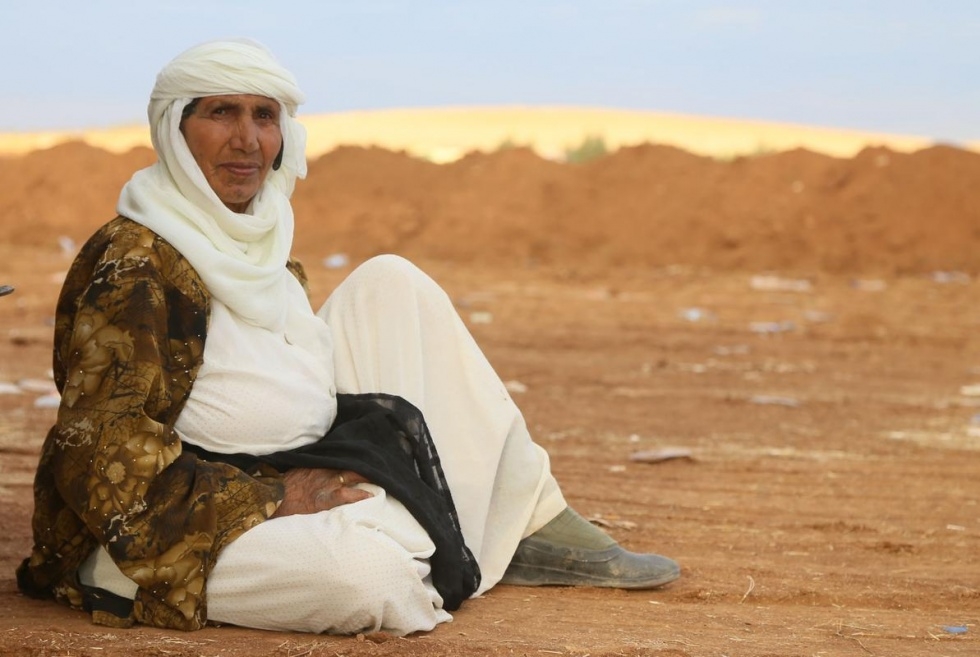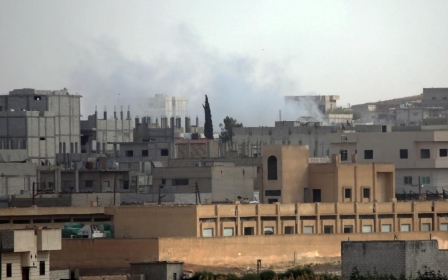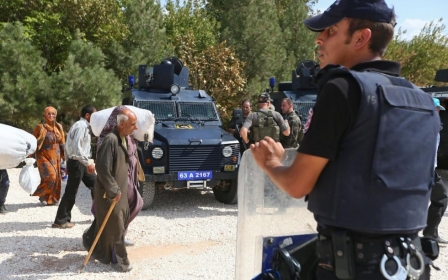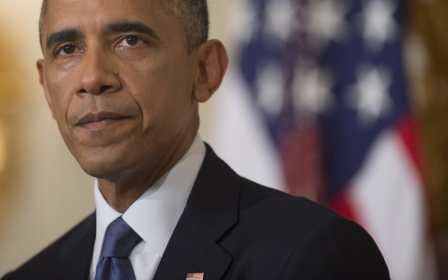Is Turkey serious about joining the anti-IS coalition?

The Turkish parliament will vote for the extension of the permit allowing its military to take action in Syria and Iraq on 2 October. The permit was first approved in October 2012 after the uprising in Syria turned into a civil war with sporadic cross-border fire exchange between the two countries.
Although Turkey did not resort to the permit, in the wake of its declaration of support for the US-led anti-IS coalition, the extension might bring forward a new document.
Turkey’s lack of willingness to join the coalition took a dramatic turn when its abducted diplomatic personnel were released by IS fighters on 20 September.
On his visit to New York, President Recep Tayyip Erdogan announced that Turkey is willing to commit to the combat against the IS. Upon his return, Erdogan told the press, “You can't destroy a terrorist organisation with air strikes. The integral force is the ground force. […] Of course, I’m not a soldier, but the air is just logistics. When there are no ground troops, nothing can be permanent.”
The concrete steps that Turkey will take are yet to be seen, but the government reiterated that some sensitive issues should be addressed with vigour if the coalition wants Turkey to join them. Deputy Prime Minister Yalcin Akdogan told the press that “Military cooperation against IS does not only mean firing bullets. […] Turkey is ready to [commit to] all forms of cooperation to combat terror.”
The preconditions that Turkey wants the coalition countries to fulfil if they want to see it in action are basically establishing buffer zones in northern Syria and creating a no-fly zone. No country or local populace except for Turkey declared their support for such a measure.
Why the bill matters
The current permit, which was adopted with an overwhelming yes vote in parliament in 2012, allows the Turkish army to take military action in “foreign countries” if necessary. It has been said that the “foreign countries” clause was put in place to extend possible actions into northern Iraq.
Turkey introduced the permit as leverage in order to intimidate the Bashar al-Assad regime so it would stop its military operations near the border. The decision came about in October 2012 when a Syrian army mortar shell fell into the Turkish border town Akcakale, killing two women and three children. Before the rise of IS, the border area was an active logistics corridor for the Free Syrian Army (FSA) - the now mostly weakened moderate opposition group in Syria, which Turkey openly supported.
The current bill does not allow the use of Turkish territory or airspace for anti-IS coalition forces.
However, in the wake of IS expansion, the border towns of Syria are now mostly controlled by militants, posing a direct threat to Turkey’s security. Over the last two weeks only, more than 130,000 Kurds have crossed the border, escaping the wrath of IS shelling Ain al-Arab, Kobane in Kurdish. The town is one of the last bastions that IS does not control in northern Syria.
Turkey had a reserved stance towards the IS during the 101 days-long hostage crisis. However, with the release of the hostages and pressure from the west paving the way for Turkey to assume a more active role in the anti-IS coalition, the scope of the permit could change.
Mehmet Yegin, a Turkish and US foreign policy expert at the Ankara-based think-tank USAK believes that the new permit will make the necessary changes to allow the coalition forces to use Turkey as a base.
“Though I do not believe that the bill would mention the specifics of the scope, it probably would allow the use of Incirlik airbase and training of the moderate Syrian rebels against IS and the Assad regime,” he told MEE.
Turkey found itself at a crossroads regarding the rising IS threat, immobilised by the double-edged nature of any action that it could take.
The hostage situation is no longer an issue, but other factors on the ground could limit Turkey’s actions. According to Baskin Oran, Turkish foreign policy professor at Ankara University, the new bill would not translate into Turkey adopting an anti-IS tone, nor changing its existing stance.
“If you consider current public and political sentiment in Turkey, it is very difficult to see that the parliament will allow Turkish troops to join a ground operation, or let coalition forces to launch their attacks from Turkey,” he told MEE.
Oran believes that Erdogan came up with excuses to avoid western demands, and the hostage situation was only one of them. The threat of IS bombings in Turkey or safety of Turkish soldiers in the Suleiman Shah tomb are among other excuses. The tomb, a symbolic Turkish enclave in Syria is now surrounded completely by IS.
However, Hilal Kaplan at daily Yeni Safak argues that the framework of the permit will be drawn in consideration of all possible scenarios. “I think it [the bill] will prioritise the security of Turkey over the expectations of the coalition,” she told MEE.
“Turkey cannot underestimate a region-wide threat that has proved its destructiveness.”
Rhetoric or genuine change?
Given the surprising shift of Erdogan’s discourse in New York, a media fanfare erupted in Turkey. Pundits speculated on an active Turkish involvement in the anti-IS coalition, experts weighted Turkey’s options to effectively deal with the threat without jeopardising its own security.
Even before the resolution of the hostage situation, Turkey took some steps to coordinate with the coalition and increase its efficiency to prevent foreign “jihadists” travelling to Syria.
Turkey seems to be sharing Barack Obama’s unwillingness to send ground forces in to fight IS. However, which countries will actually engage in a ground fight remains unclear. In other words, even if Turkey opens its borders to coalition forces either by land or air, without an assertive US involvement, Turkey would not risk its soldiers under the circumstances.
Moreover, as the US ground forces will stay away from the conflict, the creation of a buffer and no-fly zone that Turkey wants is highly unlikely. For Mehmet Yegin, the only potential outcome of the new permit is therefore a stronger rhetoric to de-legitimise IS; an action that has a symbolic value.
For a long time, Erdogan has actually been accused of giving covert support to Islamist fighters in Syria. According to Oran, how would a country that sent weapons to jihadists in Syria really join a coalition to annihilate them? If those were not weapons - as the government claims - why are the police officers who stopped the trucks in prison, facing lifetime sentences, and the media banned from covering the court case? Oran states that these rhetorical questions perhaps hint how Erdogan's new discourse is nothing but rhetoric.
“Erdogan is obsessed with Assad and his removal,” he said. “While trying to bring Muslim Brotherhood to power in Syria, Turkish foreign policy is now in the mire.”
Nevertheless, the situation is currently so severe that Kaplan dismisses the rhetorical aspect. “After what [David] Cameron and [Barack] Obama said on Assad’s role in the rise of IS, it is impossible to develop a discourse for the sake of saving the day,” she said.
Contrastingly, Oran argued that no matter what Turkey does to please the expectations of the anti-IS coalition, its sympathy towards the militants inflicted a blow to its relations with the west, resulting in a confidence crisis. “The shifting rhetoric will not be enough to regain this confidence in western capitals,” he said.
Benefit of doubt
The mixed signals from Turkey in its handling of the IS crisis perhaps indicate how it is having difficulties in developing a coherent strategy to deal with this multilayered problem.
Cengiz Candar at daily Radikal recently contended that Ankara found itself trapped between a number of options that are hard to reconcile. In his last Al-Monitor column he wrote, “[To safeguard its security, Turkey is contemplating] taking a more active part in the anti-IS coalition so as not to jeopardise its relations with Washington further, not to rock the boat with the Kurds and spell the end of the ‘peace process’ in Turkey, and to remain consistent with its avowed objective of removing the Damascus regime.”
However, the situation has reached a point at which Turkey’s attempts at striking a delicate balance could no longer be applicable. Kaplan said, “If not prevented, sooner or later the IS will target Turkey and this is why we should take some risks.”
“Turkey is not in the position to start an overseas bombing campaign, this is why it insists on establishing ‘safe zones’. Since we cannot reduce the risk by not doing anything, Turkey should shape out the anti-IS campaign for its own needs.”
Though the context is completely different than the conditions of 2003, Turkey's direct or tacit support could easily be manipulated in the hands of the “terrorists” and result in similar “terrorist acts” of that year. Yegin evokes the 2003 bombings of HSBC’s Turkish headquarters, the British Consulate and several synagogues in Istanbul by al-Qaeda. While not directly targeting the Turkish government, the bombings left more than 50 Turks dead.
According to a recent public survey, 11.2 per cent of the Turks do not see IS as a terrorist organisation. This equates to more than seven million people. For Oran, this could be considered another restriction in Turkey’s dealings with IS.
“A potential targeting by the IS depends on the extent to which Turkey contributes to the coalition,” he said. “If Erdogan keeps the promises that he made in New York, the Suleiman Shah tomb would fall in 10 minutes. This is what you get once you help the Islamist militants.”
New MEE newsletter: Jerusalem Dispatch
Sign up to get the latest insights and analysis on Israel-Palestine, alongside Turkey Unpacked and other MEE newsletters
Middle East Eye delivers independent and unrivalled coverage and analysis of the Middle East, North Africa and beyond. To learn more about republishing this content and the associated fees, please fill out this form. More about MEE can be found here.




